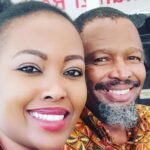former South African President Jacob Zuma's political party, uMkhonto weSizwe (MK), has sent shockwaves through the country's political landscape by announcing their intentions to interdict the first sitting of Parliament. The move comes as the MK party raises serious objections and demands justice over what they claim are manipulated results in the recent national and provincial elections. With tensions running high and the stakes higher than ever, this bold move has thrust Zuma's party into the center of the political arena.
Accusing the ruling African National Congress (ANC) of rigging the election results, the MK party, which currently holds 58 seats in the National Assembly, has called for a recount of the votes. Their demand for a fair and transparent assessment of the electoral process has reverberated across the nation, igniting debates and speculation about the integrity of South Africa's democratic system.
The MK party, through its spokesperson Nhlamulo Ndhlela, has taken legal action to halt the swearing-in ceremony of MPs in the National Assembly. They have directed their legal representatives to issue formal demands to Secretary to Parliament, Xolile George, Chief Justice Raymond Zondo, and other authorities responsible for organizing the inaugural session. This legal maneuver aims to ensure that their grievances are thoroughly addressed and that justice prevails.
Ndhlela stated, "In defense of our people's constitutional rights, the MK Party will file papers with the constitutional court to interdict the swearing in of party-nominated candidates as members of the National Assembly until our grievances, which are premised on allegations of election fraud and rigging, are thoroughly addressed by the courts."
The MK party's legal challenge is grounded in their belief that the unresolved objections and alleged election irregularities render the sitting and its activities unconstitutional. They argue that the will of the people, as represented by various political parties, including the MK party, has been compromised by what they perceive as a market-based declaration of the election results.
As tensions escalate, the MK party has also expressed concerns regarding premature statements and judgments made by George and Zondo, raising questions about their impartiality should the matter end up in court. Ndhlela emphasized the importance of preserving the integrity of the legal proceedings, stating, "It is our concern that these types of prejudicial statements and pronouncements could compromise the impartiality required when this matter ends up in court as it will."
Constitutional law scholar Pierre de Vos weighed in on the potential impact of the MK party's boycott, noting that it would not affect the required number of votes to elect the president, speaker, and deputy speaker. With the African National Congress (ANC) currently holding 159 seats in the National Assembly, the number of votes cannot fall below 134, even if only ANC MPs participate. The Electoral Commission of South Africa (IEC) has already declared the election results, implying that objections raised by the MK party may have minimal influence on the outcome.
However, the MK party's bold move has opened up a Pandora's box of questions and uncertainties, shaking the foundations of South Africa's political landscape. The upcoming legal battle and the court's response to the MK party's demands will undoubtedly shape the future of the country's democracy and its electoral processes.











